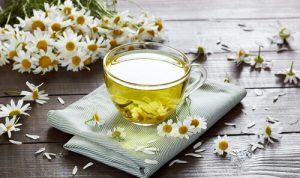Anxiety and stress are common experiences for many people, and it can be challenging to manage these feelings without proper treatment. Any over-the-counter medicine for anxiety and stress can be helpful for some individuals when used as a part of a broader treatment plan. However, it’s important to understand these products’ potential risks and benefits to make an informed decision.
Types of Over-the-Counter Medicines for Anxiety and Stress
Over-the-counter medications for anxiety and stress typically fall into two categories: natural remedies and traditional medications.
Natural Remedies
Natural remedies for anxiety and stress are derived from plants and are often marketed as dietary supplements or herbal remedies. Some of the most common natural remedies for anxiety and stress include:
Vitamins and supplements for anxiety
 Over-the-counter anxiety treatment options aren’t often the first recommended option as treatment options like prescription medications and therapy are usually the most effective; however, these OTC options can work to supplement these two main treatment methods as examples of complementary and alternative medicines.
Over-the-counter anxiety treatment options aren’t often the first recommended option as treatment options like prescription medications and therapy are usually the most effective; however, these OTC options can work to supplement these two main treatment methods as examples of complementary and alternative medicines.
Some OTC vitamins and supplements may effectively reduce anxiety symptoms. Still, it is always important to consult your provider before taking a new vitamin or supplement, especially if you take any other medications.
While more research is needed to establish how effective supplements can be, if you use them properly, they are generally not harmful.
Magnesium
Magnesium is a very important vitamin that can be found in leafy green vegetables, legumes, nuts, seeds, and whole grains. Aside from supporting your regular cell function, magnesium may also support your moods and emotions, and inadequate magnesium has been linked to anxiety and other health problems.
Studies have found that magnesium can be a great remedy for mild anxiety and may be particularly helpful for people dealing with anxiety as a symptom of premenstrual syndrome.
Omega-3
Omega-3 fatty acids are great for your health for many reasons, and they are naturally occurring in fish and certain plant sources like nuts and seeds.
Omega-3 fatty acids are helpful when it comes to managing medical conditions and mental illnesses, and they can help reduce inflammation and anxiety among young adults.
L-theanine
L-theanine is one of several amino acids which has commonly been promoted because of its potential calming effects. L-theanine is frequently found in teas.
Research has shown that L-theanine may be highly effective at promoting relaxation without causing drowsiness, making it a great way to combat anxiety without becoming tired. More research is needed, but L-theanine may also be linked to reduced symptoms of stress.
Lavender
Taking lavender orally, or using lavender for aromatherapy, may also be very effective at reducing feelings of anxiety. Lavender has been used in medicinal remedies for centuries and is well-known for its fragrance and color.
Several trials have shown that lavender can be a great way to reduce minor anxiety symptoms, and it may also help with insomnia.
Ashwagandha
Ashwagandha is an ancient remedy that can be derived from a shrub plant that is native to India and North Africa, and it has been studied extensively.
Ashwagandha has been widely recognized for its ability to lower cortisol levels and reduce stress and anxiety since it is known as the stress hormone.
 Chamomile
Chamomile
Chamomile is a flowering plant, and it is very commonly found in teas. Chamomile essential oil, extracted from the plant itself, has long been used for its anti-inflammatory and calming properties.
Chamomile can help reduce the effects of anxiety, but generally, its impact is only modest, and more research is needed.
Valerian root
Valerian, like chamomile, is also a flowering plant widely used as a herbal supplement and can be very effective at treating insomnia. Valerian root is a natural sleep aid that may also help to reduce anxiety. Studies have shown mixed results regarding its effectiveness in treating anxiety, but if you have insomnia-related anxiety, this herb may be largely beneficial for you.
Some studies have suggested that valerian does reduce anxiety and stress. In contrast, other studies have reported no changes at all, so more research is needed to confirm the effectiveness of this remedy.
Kava kava root
Kava is a traditional herb used in the South Pacific to promote relaxation and relieve anxiety. Some studies have found that kava may effectively reduce anxiety symptoms, but concerns about its safety and potential side effects exist.
Passionflower
Passionflower is a natural sedative traditionally used to relieve anxiety, insomnia, and other sleeping disorders. Some studies have found that passionflower may effectively reduce anxiety symptoms.
Holy basil
Holy basil (Ocimum tenuiflorum), or tulsi, is a staple herb in Ayurveda — a form of medicine practiced in ancient India.
Studies have shown that holy basil can help lower anxiety and stress. This is especially true when someone uses it for a longer period. But long-term studies will likely provide more information on how holy basil works and the best dose to take.
Traditional Medications
Traditional over-the-counter medications for anxiety and stress are often antihistamines that have been shown to have some soothing effects. Some of the most popular types of traditional medications available at most pharmacies include:
Diphenhydramine
Diphenhydramine is an antihistamine commonly used to treat allergies, but it can also cause drowsiness and is sometimes used to treat insomnia and anxiety. Some people take Benadryl for anxiety because of the calming side effects it can have. Some doctors may even prescribe Benadryl for children and adolescents with anxiety disorders, according to the American Academy of Child and Adolescent Psychiatry (AACAP).
Doxylamine
Doxylamine is another antihistamine that can cause drowsiness and is sometimes used to treat anxiety and insomnia. Doxylamine works by blocking the effects of histamine, a chemical involved in the body’s immune response. By blocking histamine, doxylamine can help relieve symptoms of anxiety and stress, such as restlessness, irritability, and difficulty sleeping.
Although the FDA does not specifically approve doxylamine for treating anxiety, some healthcare providers may prescribe it off-label for this purpose. However, it is important to note that using doxylamine for anxiety or stress is not considered a first-line treatment option. Other medications and therapies may be more effective for managing these conditions.
SSRIs (selective serotonin reuptake inhibitors)
Lexapro (escitalopram) and paroxetine. Antidepressants such as SSRIs (selective serotonin reuptake inhibitors) are some of the most commonly prescribed classes of medications for anxiety,
Risks and Benefits of Anxiety and Stress Medicines
Like any medication or supplement, over-the-counter medicines for anxiety and stress have potential risks and benefits that should be considered before use.
Benefits
The potential benefits of over-the-counter medicines for anxiety and stress include the following:
- Providing temporary relief of anxiety symptoms. Potentially useful for short-term episodes of anxiety
- The risk of dependence and withdrawal is less than for certain prescription sedatives
- Decreasing insomnia related to anxiety
- Offering a natural alternative to traditional medications
- Easy and inexpensive to obtain
- Typically useful if you are against taking traditional medications for anxiety
Risks
The potential risks of over-the-counter medicines for anxiety and stress include the following:
- Possible drug interactions with other medications
- Potential side effects, such as dizziness or drowsiness
- Toxicity when taken in high doses or for an extended period
- Not addressing the root cause of anxiety and stress
- Not meant for long-term use for anxiety
- Not effective for severe anxiety
- Not approved by FDA for treating anxiety or not regulated by FDA
Who Should Use Over-the-Counter Medications?
A study determined that people seeking over-the-counter treatments for anxiety and depression:
- Were more likely to be younger
- Had a shorter duration of illness
- Had less severe symptoms
- Were skeptical about psychopharmacology
 However, the researchers questioned whether OTC treatments were a logical or cost-effective solution to these problems. Most people purchasing over-the-counter treatments for anxiety would likely benefit from professional help in the form of talk therapy or prescribed medication. The exception might be for cases of very mild anxiety that seem to be helped by herbal remedies that offer relaxation at bedtime.
However, the researchers questioned whether OTC treatments were a logical or cost-effective solution to these problems. Most people purchasing over-the-counter treatments for anxiety would likely benefit from professional help in the form of talk therapy or prescribed medication. The exception might be for cases of very mild anxiety that seem to be helped by herbal remedies that offer relaxation at bedtime.
Though some doctors may recommend OTC medications like Benadryl for children and adolescents, it’s especially important not to give a child Benadryl to treat anxiety without consulting their doctor first. Diphenhydramine can be potentially dangerous and may not be the best course of treatment for your child’s symptoms.
When to Seek Professional Help
It’s important to remember that over-the-counter medicines are not a substitute for professional medical help. If anxiety and stress symptoms persist or interfere with daily life, it may be time to seek professional treatment. A healthcare provider can help determine the underlying cause of anxiety and stress and develop a personalized treatment plan that may include medication, therapy, or lifestyle changes.
Final Thoughts
Over-the-counter medicines for anxiety and stress may temporarily relieve symptoms, but it’s important to remember that they are not a solution for long-term treatment. Natural remedies and traditional medications both have potential risks and benefits that should be considered before use, and professional help should be sought if symptoms persist. As with any medication or supplement, it’s always best to consult a healthcare provider first to ensure safe and effective use.
References:
https://www.brightside.com/blog/best-over-the-counter-anxiety-medications/
https://www.goodrx.com/conditions/generalized-anxiety-disorder/otc-remedies-anxiety
https://www.verywellmind.com/can-benadryl-be-used-for-anxiety-4691024
https://khealth.com/learn/anxiety/over-the-counter-anxiety-medication/

